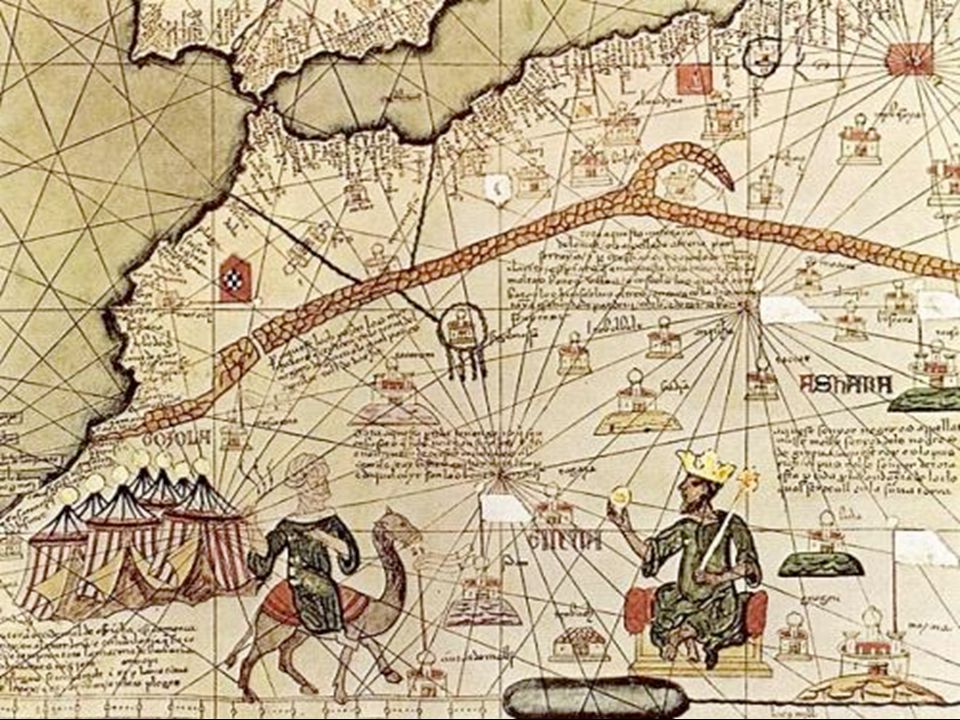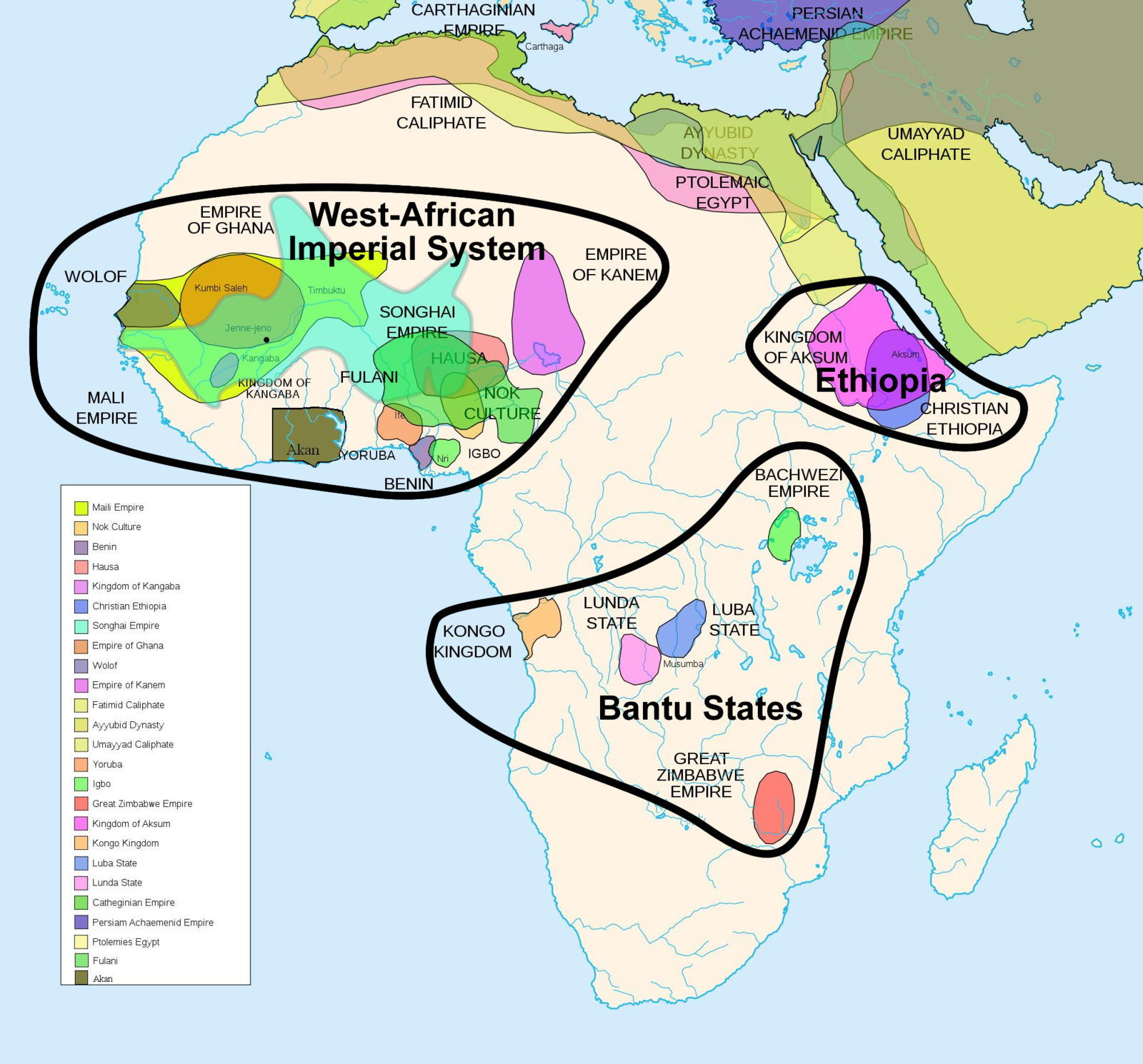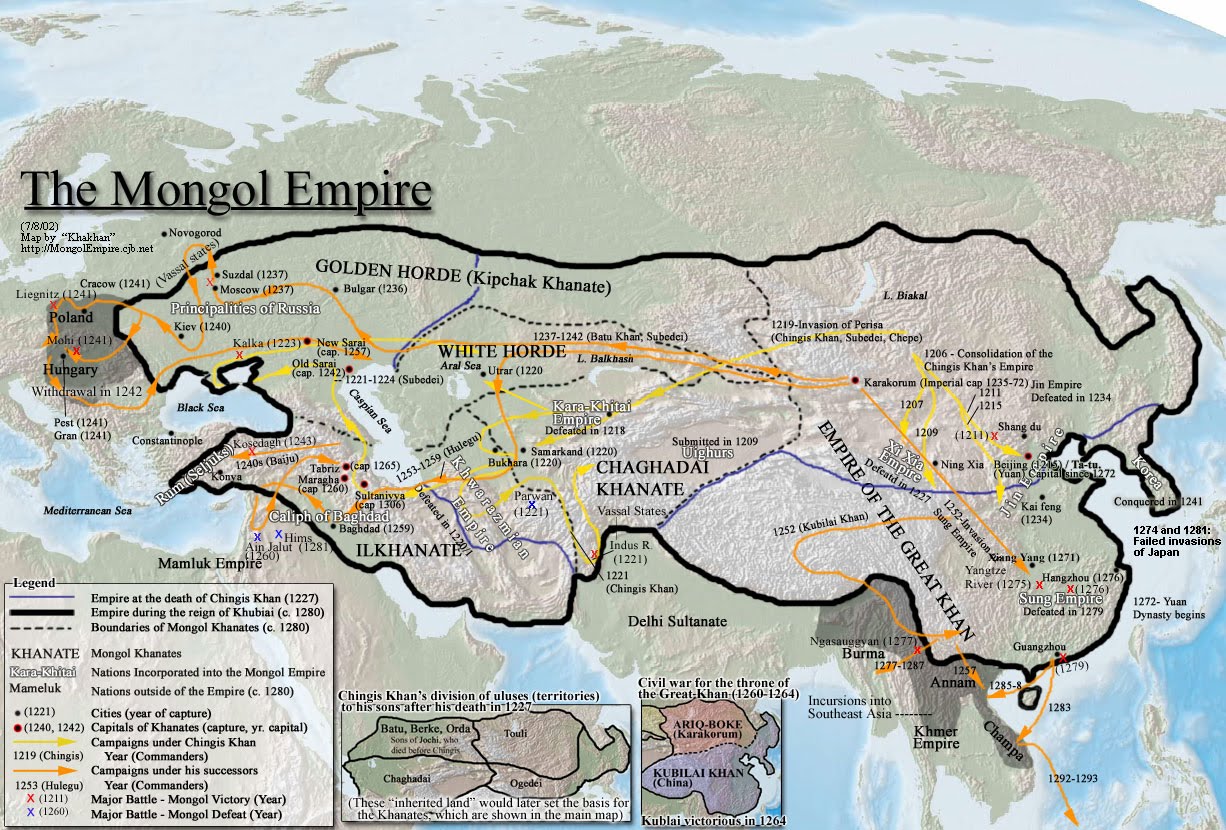- Jan 25, 2009
- 19,765
- 1,429
- Faith
- Oriental Orthodox
- Marital Status
- Private
- Politics
- US-Others
To anyone interested...
I've often heard a lot of thoughts from others claiming that the Dark Ages were Dark..
However, There were many ways in which the Dark Ages were't dark at all - and in all realness, the Dark Ages in their negativity only went so far.
As it is, Africa is pretty fascinating when seeing the ways that the culture has always been very rich - for in example, there are 7 Medieval African Kingdoms Everyone Should Know About since while Europe was experiencing its Dark Ages ( a period of intellectual, cultural and economic regression from the sixth to the 13th centuries), Africans were experiencing an almost continent-wide renaissance after the decline of the Nile Valley civilizations of Egypt and Nubia - with the leading civilizations of this African rebirth being the Axum Empire, the Kingdom of Ghana, the Mali Empire, the Songhai Empire, the Ethiopian Empire, the Mossi Kingdoms and the Benin Empire.
Of course, prior to that amazing history (already forgotten due to stereotyping on how Africa was compared to Europe), the Biblical history helps in many ways to shape the stage for those things coming to pass - and sadly, with the Reformation, you would probably have seen a lot more in the way of actual addressment of the ways that African culture shaped the Bible and history.
For the Reformation was largely a European phenomenon that impacted many things practically - especially as it concerns the ways that images of how we see others were transformed. As said elsewhere:
But I digress. For anyone interested, do you have any resources you'd like to share on Africa or Asia during the Dark Ages and do you have any thoughts as to what you enjoyed/liked about the religious developments in the Dark Ages? If anyone would like to share, I'd love to hear 
I've often heard a lot of thoughts from others claiming that the Dark Ages were Dark..
However, There were many ways in which the Dark Ages were't dark at all - and in all realness, the Dark Ages in their negativity only went so far.
As it is, Africa is pretty fascinating when seeing the ways that the culture has always been very rich - for in example, there are 7 Medieval African Kingdoms Everyone Should Know About since while Europe was experiencing its Dark Ages ( a period of intellectual, cultural and economic regression from the sixth to the 13th centuries), Africans were experiencing an almost continent-wide renaissance after the decline of the Nile Valley civilizations of Egypt and Nubia - with the leading civilizations of this African rebirth being the Axum Empire, the Kingdom of Ghana, the Mali Empire, the Songhai Empire, the Ethiopian Empire, the Mossi Kingdoms and the Benin Empire.
Of course, prior to that amazing history (already forgotten due to stereotyping on how Africa was compared to Europe), the Biblical history helps in many ways to shape the stage for those things coming to pass - and sadly, with the Reformation, you would probably have seen a lot more in the way of actual addressment of the ways that African culture shaped the Bible and history.
For the Reformation was largely a European phenomenon that impacted many things practically - especially as it concerns the ways that images of how we see others were transformed. As said elsewhere:
Gxg (G²);64653769 said:...many of the Reformers later on had slaves ) since it is a historical fact that the Protestant Reformation and the Inquisition both indirectly influenced the development of the Transatlantic Slave Trade ...in light of how in different nations, religious persecution by Catholics of Protestant sects, Protestant persecution of Catholics, and the Spanish Inquisition of Jews and other non-Christians led people to migrate to the New World to escape religious persecution and many Christians believed that the conversion of the indigenous population to Christianity was imperative ....some in Africa converting others to the beliefs of the Reformers by force and leading to situations as we see today .
We see how Dutch missionaries were active in trying to convert Taiwan's population to Christianity - in light of how Protestant missionaries established schools where Biblical religion and the Dutch language were taught - and by 1650, the Dutch had converted 5,900 of the island's inhabitants to Protestant Christianity.....with he same missionary efforts also undertaken in the other Dutch territories......as missionaries were sent by the Dutch East India Company in the Far East to the Malaysians in the early seventeenth
century (alongside Indonesia) - meaning that in the Dutch controlled territories, there was clear Protestant Christian rule, and there were efforts made to evangelize the native populations. For during the era of Protestant Reformation, in the continents of Asia and Africa, British colonial rule was not yet as extensive as that of the Dutch...nor did it do as much good in promoting the Reformed faith as the Dutch.. But in the aftermath of the Protestant Reformation, British rule was to prove more enduring, and its effects more extensive.
And yet we already see where the Dutch Calvinists - especially in places like South Africa - were EXTREMELY uncomfortable with racial diversity (due to the Eurocentric focus) and we know what came of that when seeing the history of treatment with blacks in South Africa.since the Dutch - like the Puritans - have seen South Africa as a promised land, a New Jerusalem... ( more here and here in The Gospel According to the Marginalized - Page 71 where the "eclectic" sources of South Africa's racial ideology are examined- "Dutch neo-Calvinism, German Romanism and other issues).
Last edited:




























